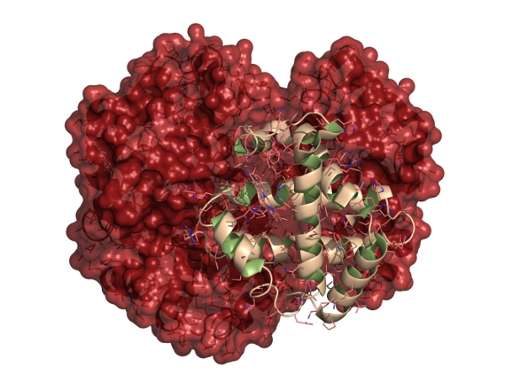Faulty arginine metabolism contributes to cardiopulmonary dysfunction in thalassemia

A research study of patients with thalassemia found that low bioavailability of the amino acid arginine may contribute to pulmonary hypertension – increased blood pressure in the pulmonary artery, pulmonary vein or pulmonary capillaries. Pulmonary hypertension is a common problem in patients with thalassemia, an inherited blood disorder that results in abnormal formation of hemoglobin, the protein in red blood cells that carries oxygen.
The Thalassemia Clinical Research Network conducted the study, which was published in the British Journal of Haematology. The first author is Claudia R. Morris, MD, associate professor of pediatrics and emergency medicine at Emory University School of Medicine and the Emory-Children's Center for Cystic Fibrosis and Airways Disease Research.
The study evaluated 27 thalassemia patients and found that coagulation abnormalities, hemolysis (rupturing of red blood cells) and dysregulation of the amino acid arginine were major factors associated with pulmonary hypertension. When the enzyme arginase is released into the bloodstream through rupture of red blood cells, argninase metabolism is disrupted, leading to low bioavailability of the amino acid arginine.
The authors previously had found that arginine deficiency is a major factor in acute pain episodes of sickle cell disease. A deficiency of nitric oxide, a potent vasodilator, has been identified in sickle cell disease and may contribute to episodes of blocked vessels and pain, and arginine is a building block of nitric oxide. Results of a phase two clinical trial reported in 2013 found that arginine therapy resulted in reduced use of pain medications and hospitalization during acute pain episodes of sickle cell disease.
In the current study of thalassemia patients, arginase activity and concentration correlated strongly to echocardiographic and cardiac-MRI measurements of cardiopulmonary function, and researchers believe these factors may also exist in other myocardial disorders, especially those associated with low arginine bioavailability.
"We are finding that arginine dysregulation is an important hematologic mechanism beyond sickle cell disease," says Morris. This new study shows that it plays a role in thalassemia patients as well and may contribute to cardiopulmonary dysfunction. Interventions aimed at restoring arginine bioavailability could be a promising area of focus for new therapeutics."
More information: "Dysregulated arginine metabolism and cardiopulmonary dysfunction in patients with thalassaemia." British Journal of Haematology, 169: 887–898. doi: 10.1111/bjh.13452


















